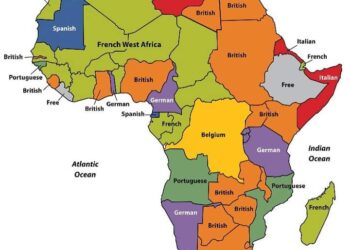The level of insecurity in Nigeria, the giant of Africa, has been on the rise daily. Insecurity is a state of being open to threat and danger. This has been a hindrance not only to the improvement of quality of life and material development of Nigerians, but also has affected the economy of the nation. The result is clearly seen on Gross Democratic Product (GDP), Gross National Product (GNP) and Per Capita Income (CPI).
As a sovereign state, being insecure has not only scared foreign investors away but restricted local businesses from progressing. Nigeria began witnessing insecurity since the civil war of 1967, which lasted for three years. However, recently, the nation has suffered some series of attacks making it third most terrorized nation, according to data from SBM intelligence.
From January to November 2020, there has been an average of 142 attacks in different regions of the nation according to SBM intelligence. The North-east states, the most insecure, have been rampantly terrorized by the Boko Haram extremists, which began in 2009 as a campaign against western education. The sect has so far displaced thousands of citizens in the region.
On November 28, 2020, the sect massacred more than 100 rice farmers in Zabarmari, Jere local government area of Borno state, impacting negatively on agriculture. Sadly, this is not the least of their gruesome activities. On February 23, 2021, Boko Haram attacked Adam Kolo, Gwange and Keleri wards of Maiduguri, Borno state capital. This attack, leaving nine dead and many injured, came a week after the Army recaptured Marte, one of the strongholds by the sect.
On May 11, the sect launched another fatal attack on Molai and Jiddari Polo of Maiduguri, setting houses ablaze and injuring many. The attack happened the same day President Buhari was meeting with security chiefs to discuss insecurity in the country.
As the Boko Haram extremists are causing unrest and tension in the Northeastern states, Bandits and Kidnappers are doing same in the North-central and Northwestern states. These activities coupled with that in the Southeast, suspected to be caused by members of the (IPOB), have been on the news daily.
The kidnapping of 27 Kagara boys on February 17, about 300 Jangebe girls on February 26, 39 Afaka students on March 11, and 23 Greenfield students on April 20, all in 2021 proves that government’s efforts are not yielding expected results.
The South-west, where the nation’s center of excellence is located, is disturbed by armed herders. Because of the federal government’s inability to arrest the insecurity in the nation, the region’s governors created the Amotekun, an armed security outfit, to combat the menace.
The South-east, the region mostly affected by the Nigerian civil war, has been witnessing series of attacks from gunmen suspected to be members of the IPOB.
On May 10, 2021, 21 police officers were killed in a gun attack in Akwa Ibom state of the region. This came after several other attacks in different states of the region from January to May, 2021. All these assaults were suffered majorly by the officers of the Nigeria Police. The attacks in these regions in the nation were perhaps nothing compared to that on Aso Rock, the seat of power, on May 10.
Although different state governments are trying to secure their states, the federal government needs to stop rhetoric and swing into action if indeed it intends to secure the lives and properties of Nigerians as promised prior to 2015 general election.
Al’Amin Umar,
Department of Mass Communication,
University of Maiduguri




